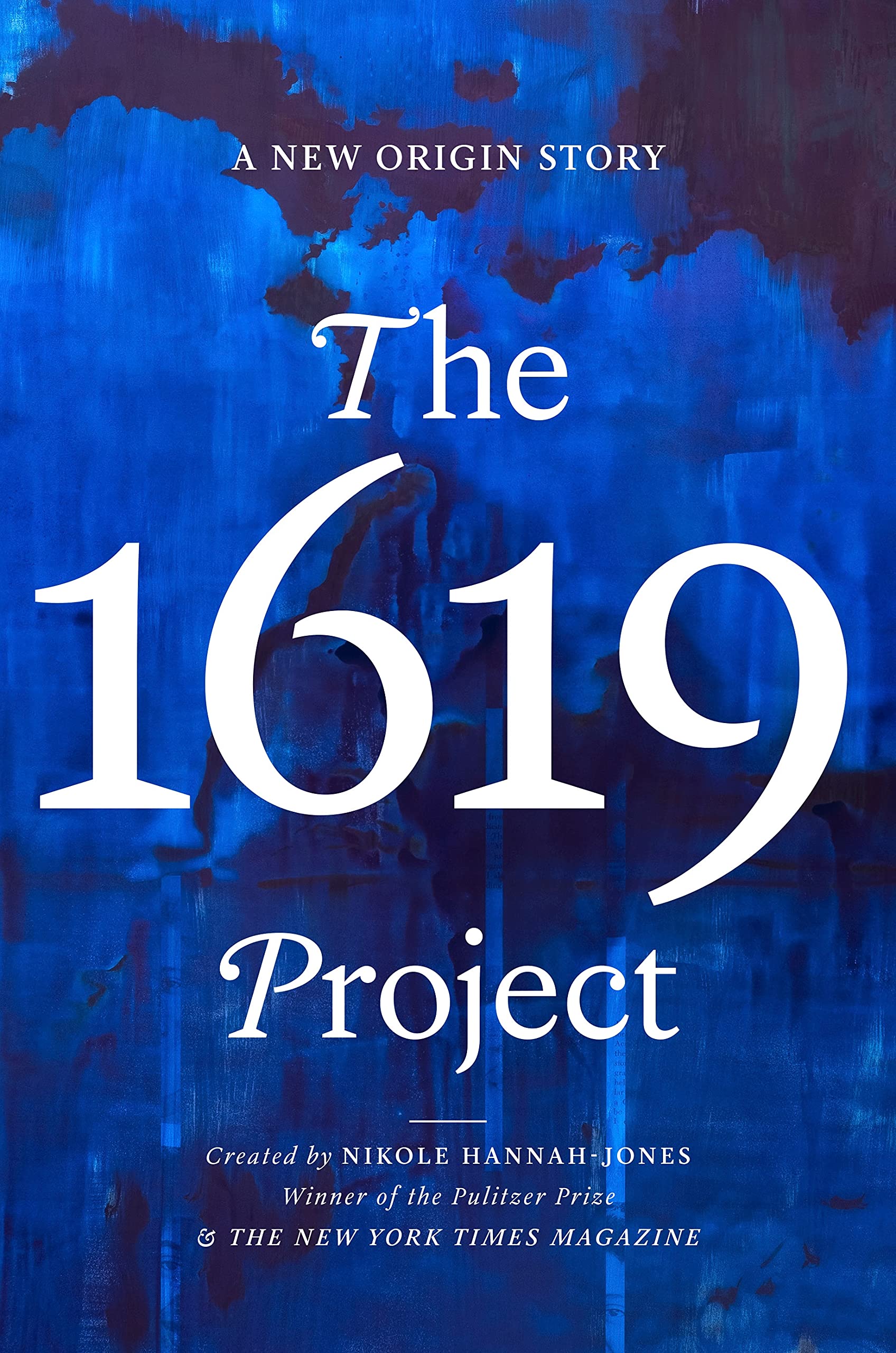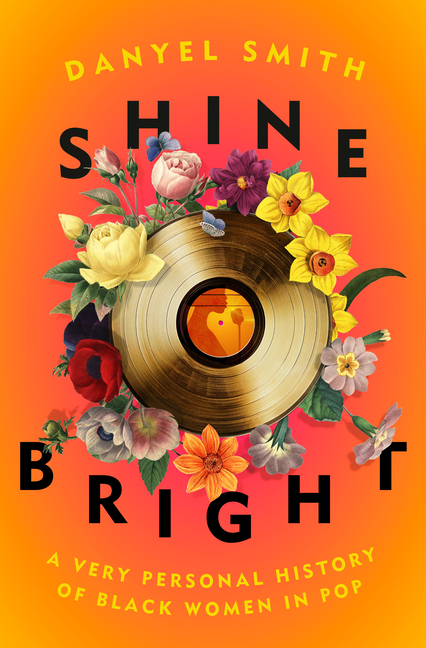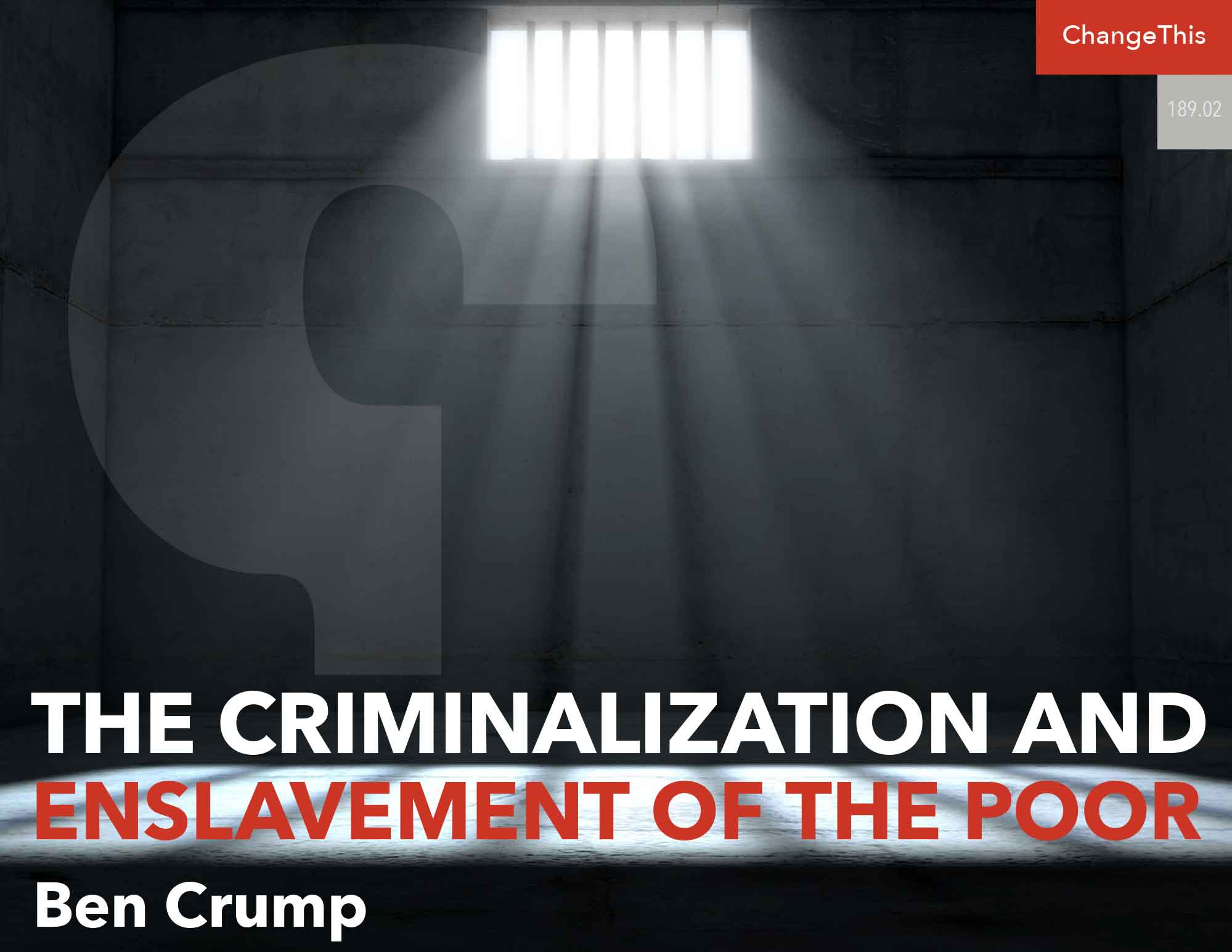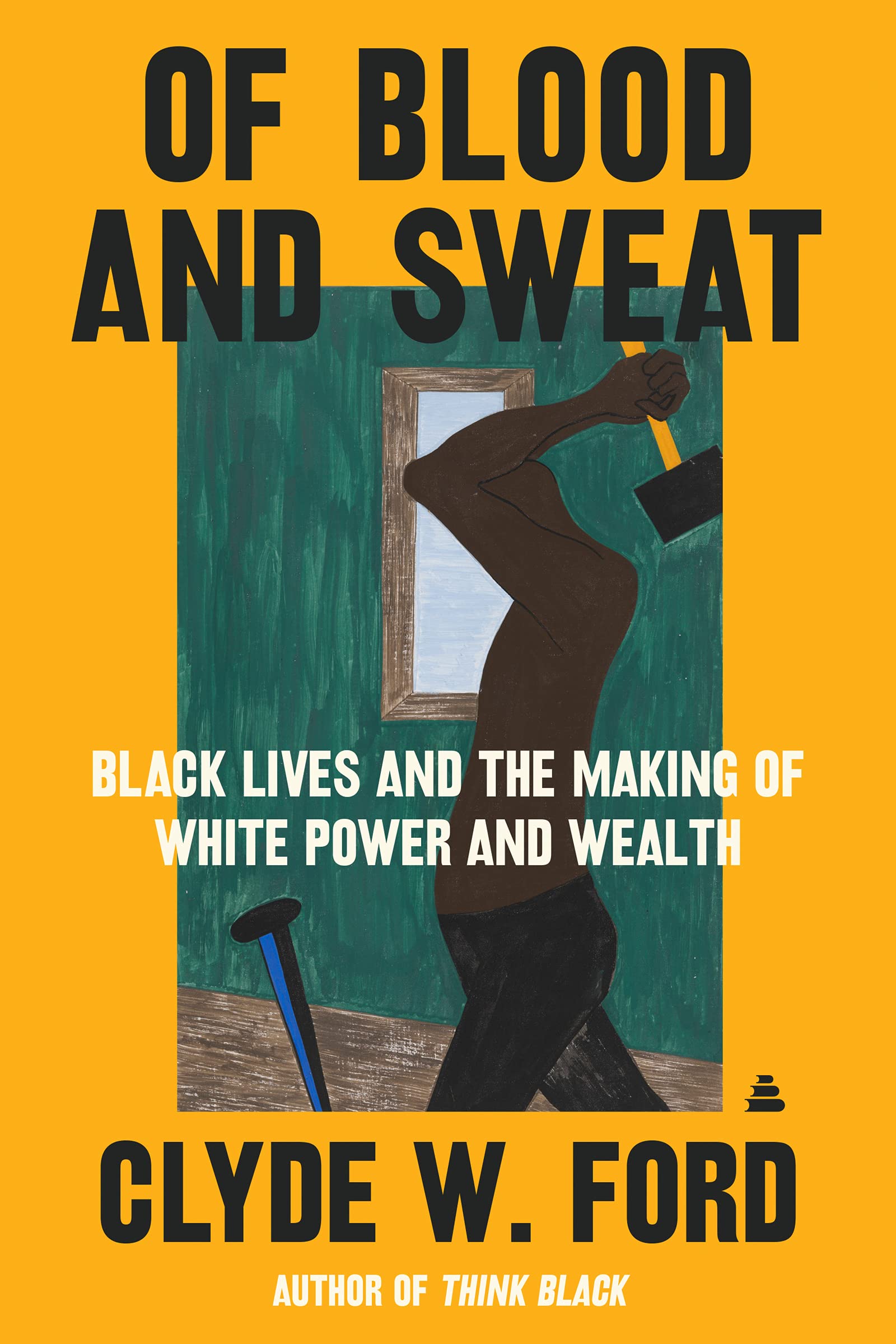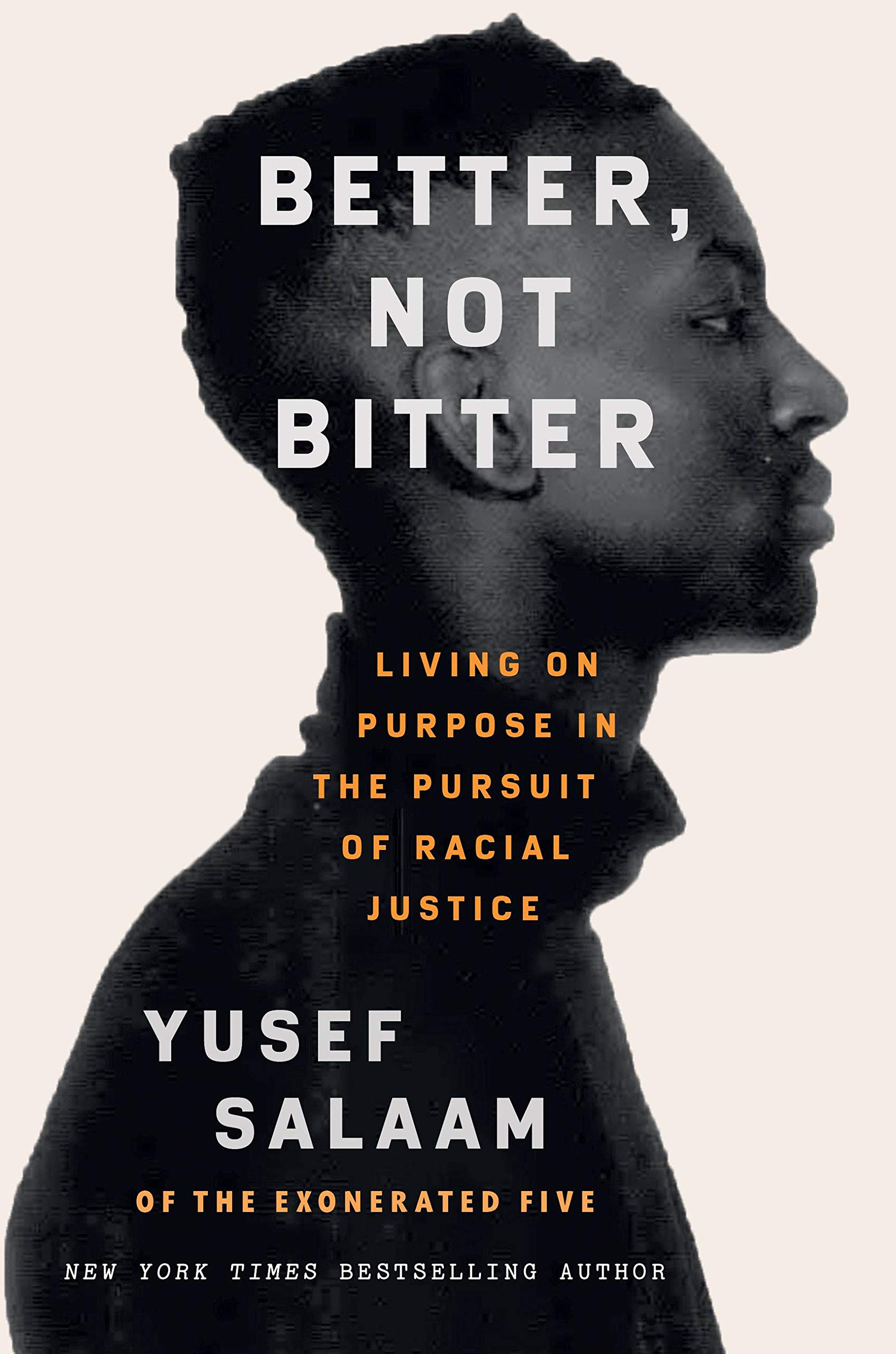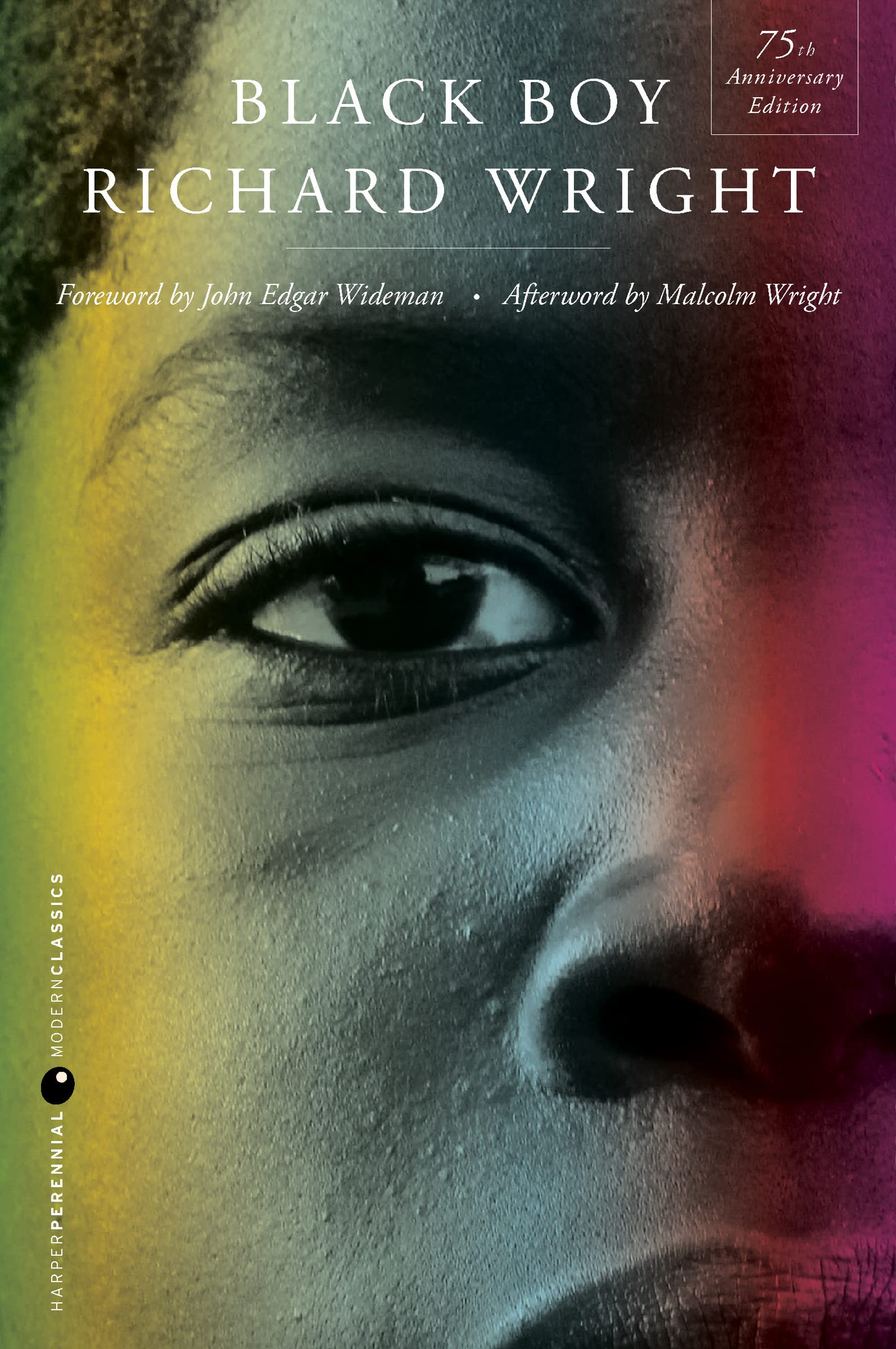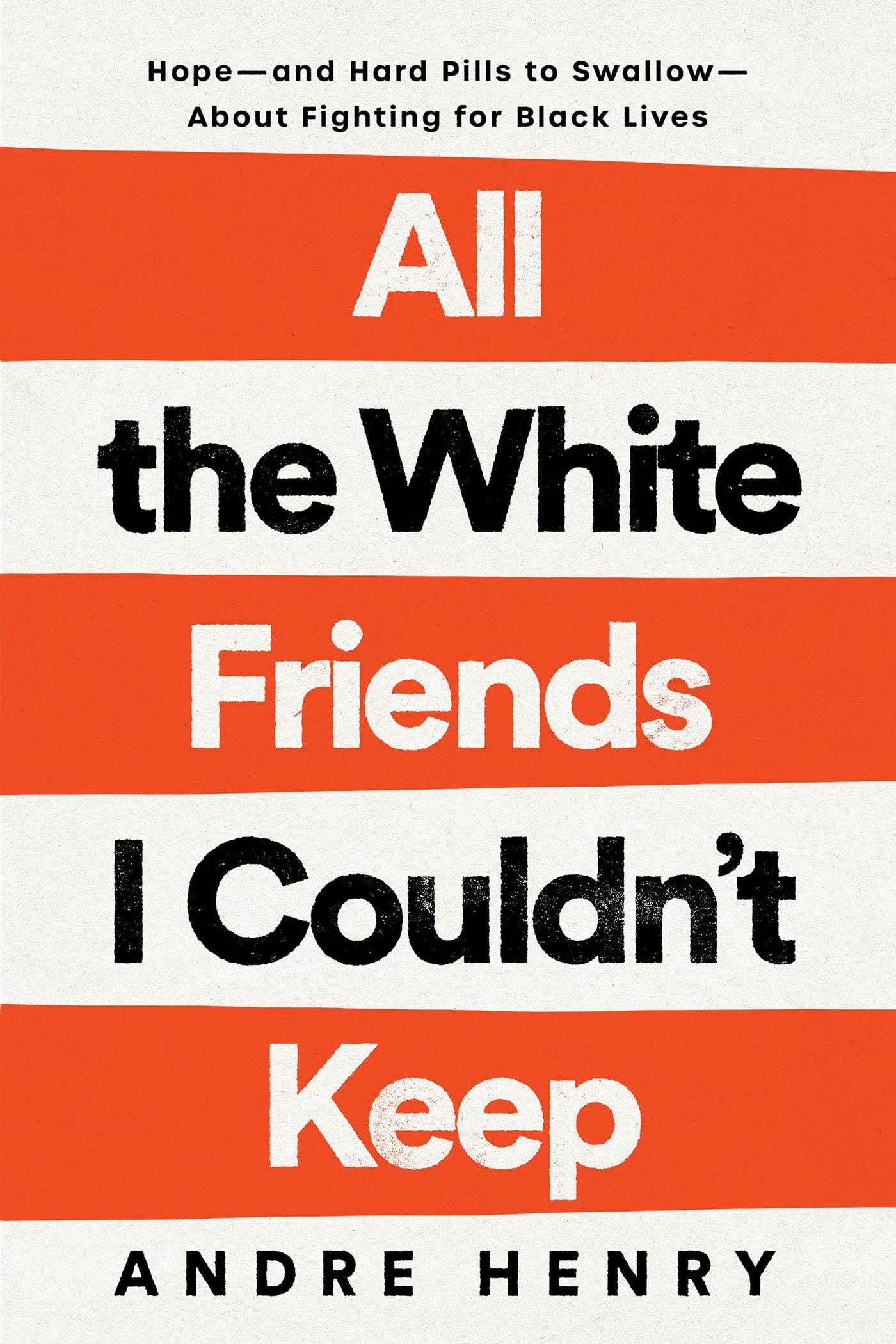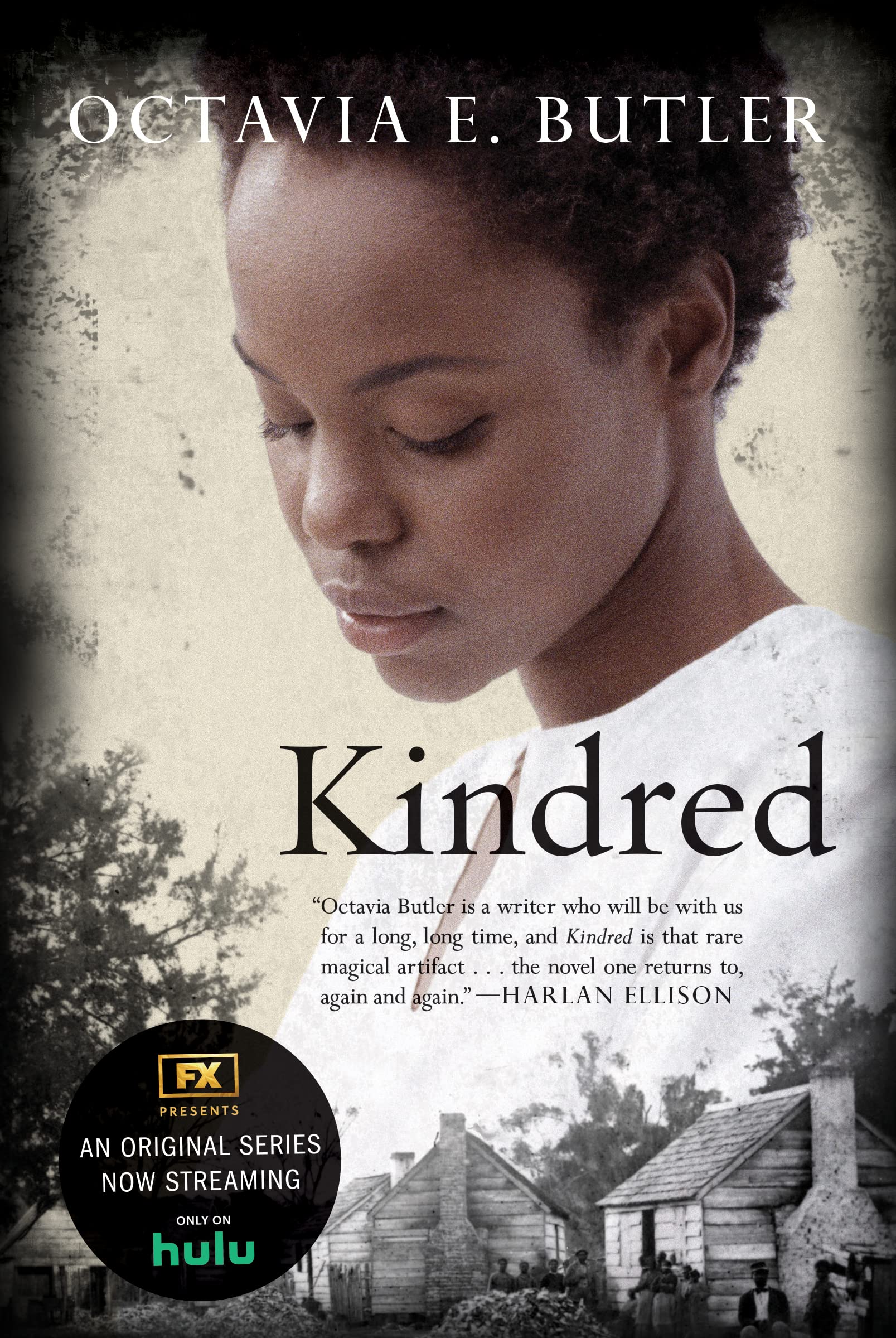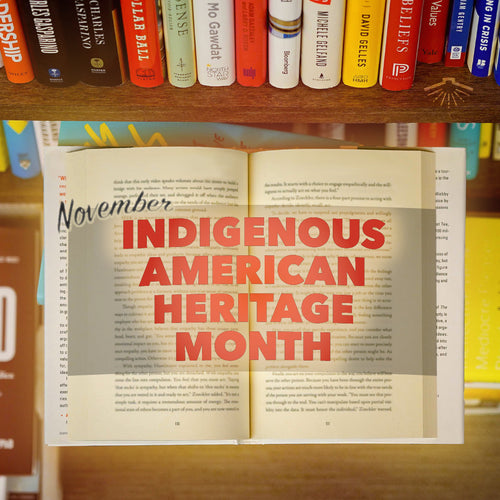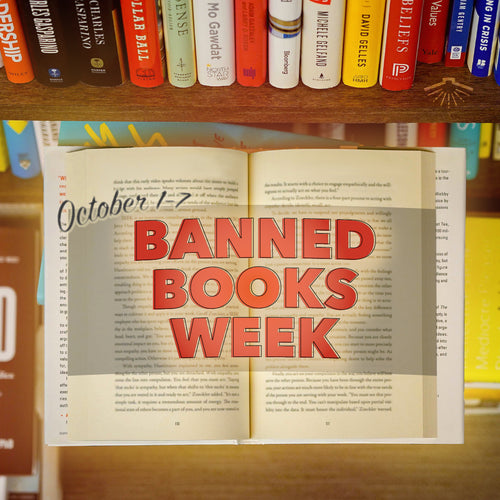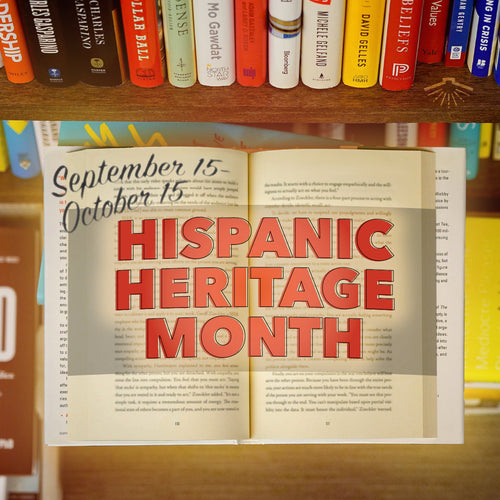February: Black History Month Booklist
Black History Month is a time to learn about and reflect on the diverse and remarkable pasts of people of the African diaspora. The following books, both upcoming and previously reviewed, are beneficial additions to your reading list as humans that continue to work toward building communities that are more receptive and embracing of diversity.
We are grateful to continue seeing a greater variety of Black authors and experiences on bookshelves everywhere, and if you have more recommendations that we can include in future lists, please send them our way!
For even more of a selection, and to support an independent and Black-owned bookstore, local to Milwaukee, please visit Niche Book Bar online and Rooted MKE online or in person.
AWARDS SEMI-FINALIST & BESTSELLER | The 1619 Project: A New Origin Story, OneWorld
Additionally: On January 26th, this book has been adapted as a docuseries on Hulu. Watch the trailer here.
In late August 1619, a ship arrived in the British colony of Virginia bearing a cargo of twenty to thirty enslaved people from Africa. Their arrival led to the barbaric and unprecedented system of American chattel slavery that would last for the next 250 years. This is sometimes referred to as the country’s original sin, but it is more than that: It is the source of so much that still defines the United States.
The New York Times Magazine’s award-winning “1619 Project” issue reframed our understanding of American history by placing slavery and its continuing legacy at the center of our national narrative. This new book substantially expands on that work, weaving together eighteen essays that explore the legacy of slavery in present-day America with thirty-six poems and works of fiction that illuminate key moments of oppression, struggle, and resistance. The essays show how the inheritance of 1619 reaches into every part of contemporary American society, from politics, music, diet, traffic, and citizenship to capitalism, religion, and our democracy itself.
This is a book that speaks directly to our current moment, contextualizing the systems of race and caste within which we operate today. It reveals long-glossed-over truths around our nation’s founding and construction—and the way that the legacy of slavery did not end with emancipation, but continues to shape contemporary American life.
AWARDS FINALIST | Shine Bright: A Very Personal History of Black Women in Pop by Danyel Smith, Roc 101
Danyel Smith's Shine Bright tells the story of the Dixie Cups, of Dionne Warwick and Cissy Houston, of Leontyne Price and Linda “Peaches” Greene, of Janet Jackson and Mariah Carey, and of so many more Black women whose intelligence, talent, and drive made the music that has created so much of American pop culture. Interweaved with those stories, she also relates the struggles and successes of her own life and career, which saw her rise to become the first Black and first woman editor in chief of Vibe. It is a mind-bogglingly ambitious formula, and Smith pulls it off with aplomb. It is also a solid business book—about an individual career and about an industry that has not done well historically by those who create the product that produces the wealth, about the women who have defined the culture, and one woman who has covered their triumphs.
ChangeThis | "The Criminalization and Enslavement of the Poor" by Ben Crump
Slavery was officially abolished in America more than 150 years ago, but the desire to replace its cheap labor source and funnel finances into private for-profit prisons has given rise to an immoral system that consciously and unconsciously criminalizes and imprisons Black and brown Americans.
Read this ChangeThis manifesto.
EDITOR’S CHOICE | Of Blood and Sweat: Black Lives and the Making of White Power and Wealth by Clyde W. Ford, Amistad
In the summer of 1619, the first Black people arrived in America, kidnapped and carried from their homes in West Africa by Portuguese slave traders, captured on the high seas by British pirates, and sold to a tobacco farmer from Jamestown. As crude as it may sound, as incredulous as our modern minds may be to the reality, this monumental event was most likely seen as not much more than a business transaction at the time, which is how it was dispassionately recorded by the secretary of the colony of Virginia, John Rolfe (once husband to the Native American women we know today as Pocahontas) in his ledger.
STAFF PICKS | Better, Not Bitter: Living on Purpose in the Pursuit of Racial Justice by Yusef Salaam, Grand Central Publishing
An inspiring social justice and spiritually-forward memoir, Better, Not Bitter provides a well-rounded perspective on the toll taken on the minds, bodies, and spirits of those involved in the American prison system. The book is an insightful unpacking of the wrongful conviction of the Central Park Five in 1989, recollected by Yusef Salaam who was only sixteen when he was handcuffed and sent to the extremely violent Rikers Island prison with the four other boys. But a story is more than a sequence of events:
Often, we tend to lean on binaries that help move our agendas along, both in general and in the realm of social justice. We hear about either the looters or the peaceful protesters. Never about the oppressive forces that led to such an outpouring of rage and grief being expressed in the streets.
STAFF PICKS | Black Boy by Richard Wright, Harper Perennial Modern Classics
Recommended by Emily Porter
60th anniversary edition: Richard Wright’s eloquent autobiography about growing up in the Jim Crow South that gives unique voice to being Southern, black, and male in early 20th century America
Black Boy is a classic of American autobiography, a subtly crafted narrative of Richard Wright’s journey from innocence to experience in the Jim Crow South. An enduring story of one young man’s coming of age during a particular time and place, Black Boy remains a seminal text in our history about what it means to be a man, black, and Southern in America.
When Black Boy was first published in 1945, it soared to the top of the bestseller lists, became a Book-of-the-Month Club selection, and Ralph Ellison discerned it belonged to the tradition of the blues, an elegant gesture of testifying, “both to the agony of life and the possibility of conquering it through sheer toughness of spirit.” Sixty years later and now a classic, Black Boy is an eloquent and deeply moving document of a young boy’s struggle for survival.
STAFF PICKS | All the White Friends I Couldn’t Keep by Andre Henry, Convergent Books
Recommended by Jasmine Gonzalez
A leading voice for social justice reveals how he stopped arguing with white people who deny the ongoing legacy of racism—and offers a proven path forward for Black people and people of color based on the history of nonviolent struggle.
When the rallying cry "Black Lives Matter" was heard across the world in 2013, Andre Henry was one of the millions for whom the movement caused a political awakening—and a rupture in some of his closest relationships with white people. As he began using his artistic gifts to share his experiences and perspective, Henry was grieved to discover that many white Americans—people he called friends and family—were more interested in debating whether racism existed, or whether Henry was being polite enough in the way he used his voice.
In this personal and thought-provoking book, Henry explores how the historic divides between Black people and non-Black people are expressed through our most mundane interactions, and why this struggle won’t be resolved through civil discourse, diversity hires, interracial relationships, or education. What we need is a revolution, one that moves beyond symbolic progress to disrupt systems of racial violence and inequality in tangible, creative ways.
Sharing stories from his own path to activism—from studying at seminary to becoming a student of nonviolent social change; from working as a praise leader to singing about social justice—and connecting those experiences to lessons from successful nonviolent struggles in America and around the world, he calls Black people and people of color to divest from whiteness and its false promises, trust what their lived experiences tell them, and practice hope as a discipline as they work for lasting change.
STAFF PICKS | Kindred by Octavia E. Butler, Beacon Press
Recommended by Roy Normington
The visionary time-travel classic whose Black female hero is pulled through time to face the horrors of American slavery and explores the impacts of racism, sexism, and white supremacy then and now.
“I lost an arm on my last trip home. My left arm.”
Dana’s torment begins when she suddenly vanishes on her 26th birthday from California, 1976, and is dragged through time to antebellum Maryland to rescue a boy named Rufus, heir to a slaveowner’s plantation. She soon realizes the purpose of her summons to the past: protect Rufus to ensure his assault of her Black ancestor so that she may one day be born. As she endures the traumas of slavery and the soul-crushing normalization of savagery, Dana fights to keep her autonomy and return to the present.
Blazing the trail for neo-slavery narratives like Colson Whitehead’s The Underground Railroad and Ta-Nehisi Coates’s The Water Dancer, Butler takes one of speculative fiction’s oldest tropes and infuses it with lasting depth and power. Dana not only experiences the cruelties of slavery on her skin but also grimly learns to accept it as a condition of her own existence in the present. “Where stories about American slavery are often gratuitous, reducing its horror to explicit violence and brutality, Kindred is controlled and precise” (New York Times).
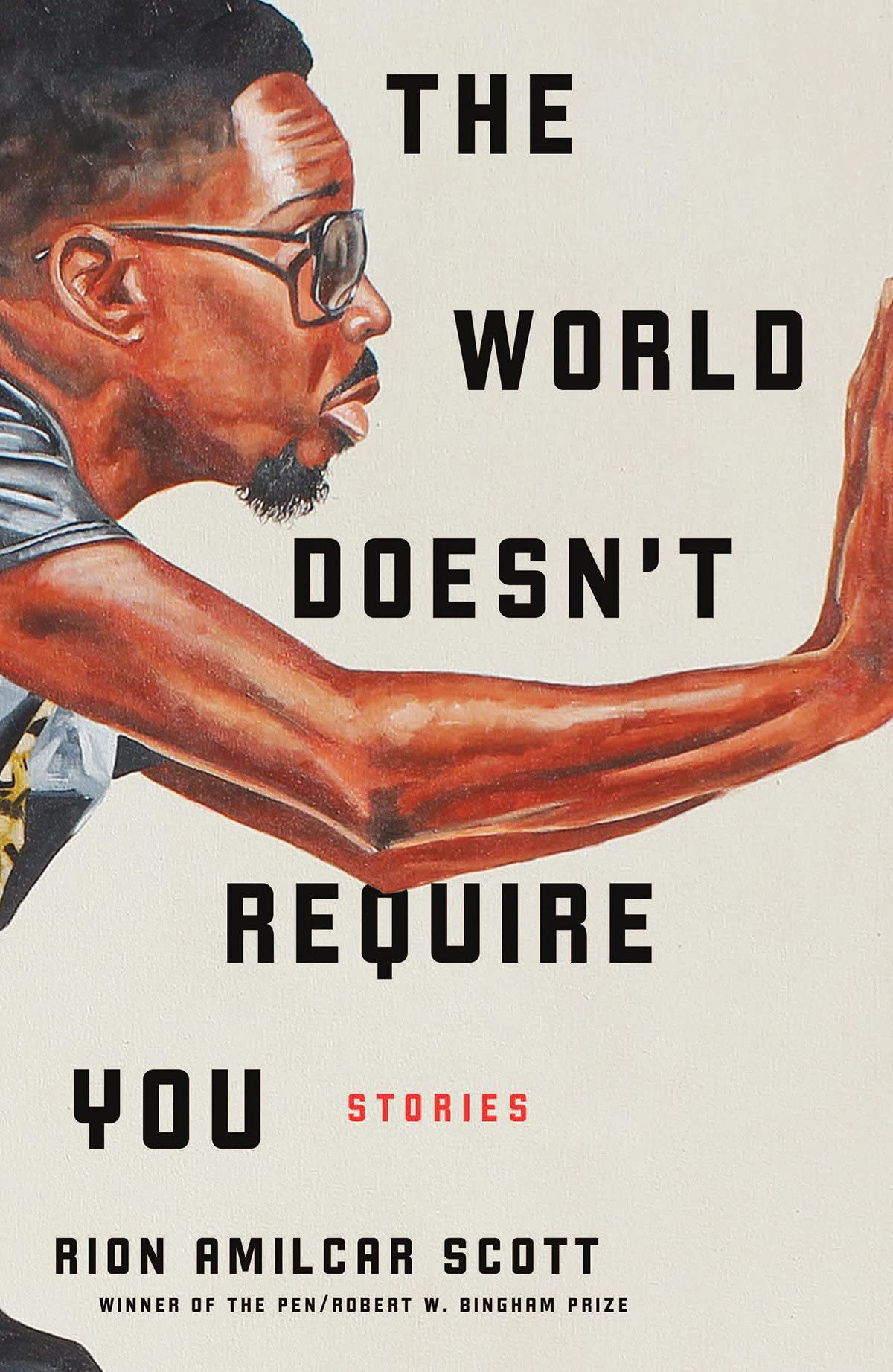 STAFF PICKS | The World Doesn't Require You: Stories by Rion Amilcar Scott, Liveright
STAFF PICKS | The World Doesn't Require You: Stories by Rion Amilcar Scott, Liveright
Recommended by Michael Jantz
Set in the mythical Cross River, Maryland, The World Doesn’t Require You heralds “a major unique literary talent” (Entertainment Weekly). Established by the leaders of America’s only successful slave revolt in the mid-nineteenth century, the town still evokes the rhythms of its founding. With lyrical prose and singular dialect, Rion Amilcar Scott pens a saga that echoes the fables carried down for generations—like the screecher birds who swoop down for their periodic sacrifice, and the water women who lure men to wet death.
Among its residents—wildly spanning decades, perspectives, and species—are David Sherman, a struggling musician who just happens to be God’s last son; Tyrone, a ruthless, yet charismatic Ph.D. candidate, whose dissertation about a childhood game ignites mayhem in the neighboring, once-segregated town of Port Yooga; and Jim, an all-too-obedient robot who obeys his Master. Culminating with an explosive novella, The World Doesn’t Require You is a “leap into a blazing new level of brilliance” (Lauren Groff) that affirms Rion Amilcar Scott as a writer whose storytelling gifts the world very much requires.
FEBRUARY RELEASES
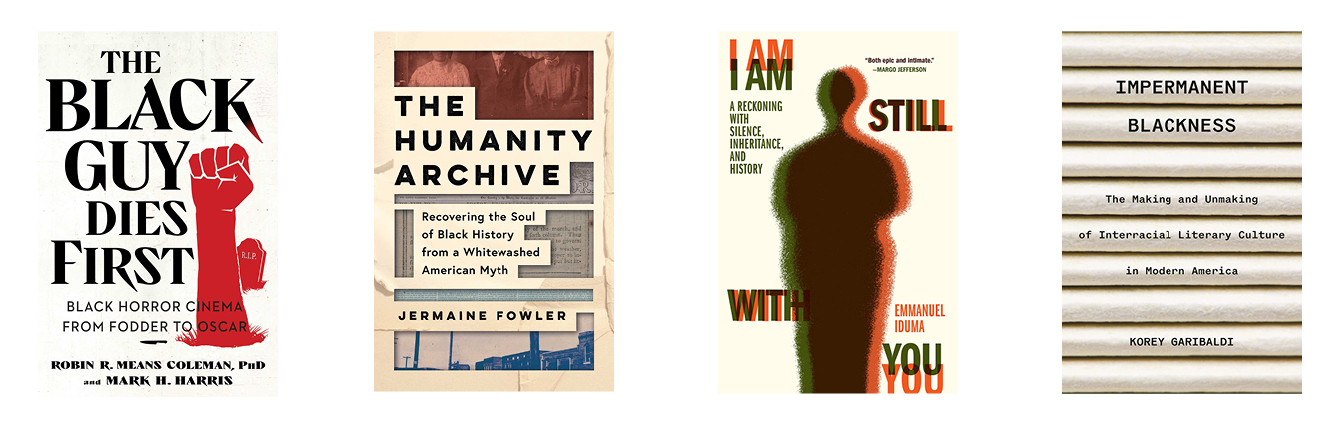
The Black Guy Dies First: Black Horror Cinema from Fodder to Oscar by Robin R. Means Coleman, Mark H. Harris, Gallery/Saga Press
A definitive and surprising exploration of the history of Black horror films, after the rising success of Get Out, Candyman, and Lovecraft Country from creators behind the acclaimed documentary, Horror Noire.
The Black Guy Dies First explores the Black journey in modern horror cinema, from the fodder epitomized by Spider Baby to the Oscar- winning cinematic heights of Get Out and beyond. This eye-opening book delves into the themes, tropes, and traits that have come to characterize Black roles in horror since 1968, a year in which race made national headlines in iconic moments from the enactment of the 1968 Civil Rights Act and Martin Luther King Jr.’s assassination in April. This timely book is a must-read for cinema and horror fans alike.
The Humanity Archive: Recovering the Soul of Black History from a Whitewashed American Myth by Jermaine Fowler, Row House Publishing
Using history as a foundation, The Humanity Archive uses storytelling techniques to make history come alive and uncover the truth behind America's whitewashed history.
The Humanity Archive focuses on the overlooked narratives in the pages of the past.
Challenging dominant perspectives, author Jermaine Fowler goes outside the textbooks to find recognizably human stories. Connecting current issues with the heroic struggles of those who have come before us, Fowler brings hidden history to light.
I Am Still With You: A Reckoning with Silence, Inheritance, and History by Emmanuel Iduma, Algonquin Books
A deeply moving, lyrical journey through the author’s homeland of Nigeria, in search of the truth about his disappeared uncle and the history of a war that shaped him, his family, and a nation
In inimitable, rhythmic prose, the author and winner of the prestigious Windham-Campbell Prize Emmanuel Iduma tells the story of his return to Nigeria, where he grew up, after years of living in New York. He traveled home with an elusive mission: to learn the fate of his uncle Emmanuel, his namesake, who disappeared in the Nigerian Civil War in the late 1960s. A conflict that left so many families broken, the war remains at the margins of the history books, almost taboo to discuss. To find answers, Iduma stopped in city after city throughout the former Biafra region, reconnecting with relatives dear and distant to probe their memories, prowling university libraries to furtively photocopy illicit books, and visiting half-abandoned monuments along the highway. Perhaps, he realized, if he could understand how his father grieved the loss of a brother in the war, he might learn how to grieve his late father in turn.
His is also the story of countless families across the country and across the world who will never have answers or proper funerals for their loved ones. It’s a story about the birth of an artist, about writing itself as an act both healing and political, even dangerous. And it’s a story about family history and legacy, and all the questions the dead leave unanswered. How much of the author’s identity is wrapped up in this inheritance? And what does it mean to return home, when the people who define it are gone?
Equal parts memoir, national history, and political reckoning, I Am Still With You is a profoundly personal story of collective loss and making peace with the unknowable.
Impermanent Blackness: The Making and Unmaking of Interracial Literary Culture in Modern America by Korey Garibaldi, Princeton University Press
Revisiting an almost-forgotten American interracial literary culture that advanced racial pluralism in the decades before the 1960s
In Impermanent Blackness, Korey Garibaldi explores interracial collaborations in American commercial publishing—authors, agents, and publishers who forged partnerships across racial lines—from the 1910s to the 1960s. Garibaldi shows how aspiring and established Black authors and editors worked closely with white interlocutors to achieve publishing success, often challenging stereotypes and advancing racial pluralism in the process.
Impermanent Blackness explores the complex nature of this almost-forgotten period of interracial publishing by examining key developments, including the mainstream success of African American authors in the 1930s and 1940s, the emergence of multiracial children’s literature, postwar tensions between supporters of racial cosmopolitanism and of “Negro literature,” and the impact of the Civil Rights and Black Power movements on the legacy of interracial literary culture.
By the end of the 1960s, some literary figures once celebrated for pushing the boundaries of what Black writing could be, including the anthologist W. S. Braithwaite, the bestselling novelist Frank Yerby, the memoirist Juanita Harrison, and others, were forgotten or criticized as too white. And yet, Garibaldi argues, these figures—at once dreamers and pragmatists—have much to teach us about building an inclusive society. Revisiting their work from a contemporary perspective, Garibaldi breaks new ground in the cultural history of race in the United States.

